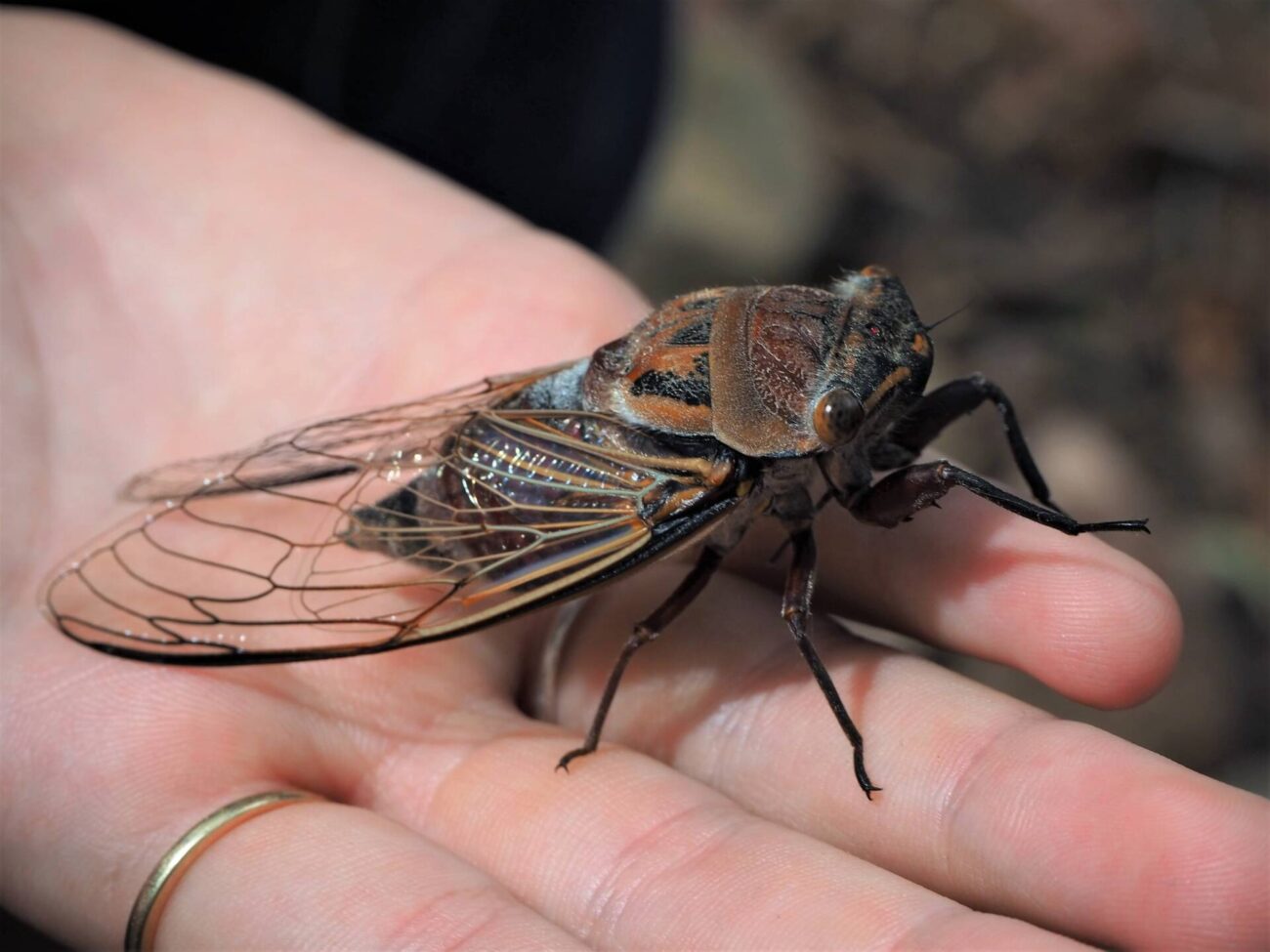
Cicadas – the Characteristic Sound of Summer
Anyone who has been in Dalmatia cannot help but notice the repetitive clicking – chirruping sound which fills the air on the hot sunny afternoons. The sound is incessant and penetrating, yet at the same time remarkably soothing.
The creature responsible for it, the male cicada, is surprisingly little. He also blends in perfectly with the branches he sits on, so it is not easy to catch sight of him. He is a fair-weather operator. Female cicadas lay their eggs on twigs and branches; the eggs hatch after 6 to 10 weeks, when the young nymphs emerge and go down into the ground, where they live on liquids sucked out of plant roots. When they are fully developed, which takes a variable amount of time, they come out of the ground to start their own cycle of mating and laying eggs. Mating only starts when the temperature reaches 18°C (65°F). It is said that the male’s mating sound, which is produced by vibrating his tympanic membranes at high speeds, can reach 100 decibels, and can be heard by females up to a mile away. Each species of cicada – and there are over 3,000 of them – has its own characteristic sound.
Physicist Amos Dolbear identified a relationship between air temperature and the rate at which crickets chirped, although the exact type of cricket he studied was not identified. In 1897 he published a paper titled ‘The Cricket as a Thermometer’, in which he created a formula for calculating the ambient temperature from the number of vibrations per minute. However, cicadas and crickets are not the same. Cicadas belong to the superfamily Cicadoidea in the order Homoptera, while crickets are part of the order Orthoptera, and are now included in the superfamily Grylloidea. ‘Dolbear’s Law’ doesn’t necessarily apply to cicadas, that is something scientists have yet to determine.
During siesta time on Hvar, which lasts from anytime after midday up to about 4 pm, the cicadas’ mating calls, loud as they are, fade into a gentle rhythmic background against the total quiet which is the norm in Hvar’s small inland villages, perfect for lulling you into a doze, perhaps even a deep sleep, as you rest in the shade. Excellent for recharging the batteries, which is what summer holidays are all about.





